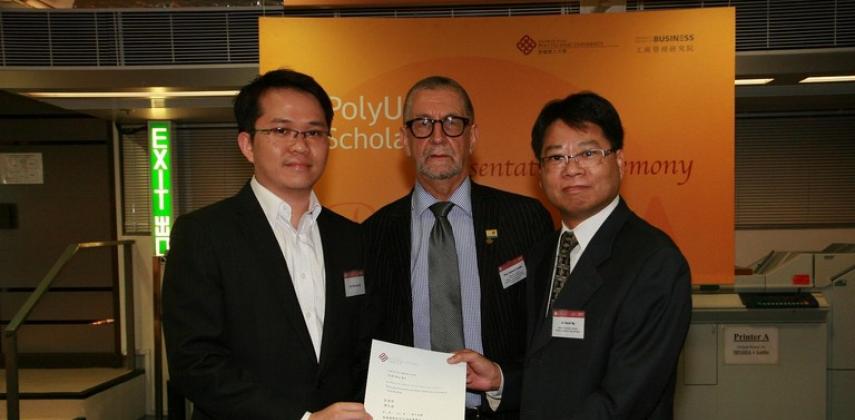After graduating from the Chinese University of Hong Kong (CUHK) with a degree in business administration in 2001, Simon Tam joined the banking industry. He has worked for a couple of banks, and is currently a manager at the headquarters of the Bank of Communications. Tam finds working in the industry rewarding as he can help clients in needs.
In 2010, having worked in banking for almost a decade, Tam thought it was time to enhance his knowledge. He enrolled as a part-time MBA student at the Hong Kong Polytechnic University (PolyU) and is expected to graduate from the programme in July this year. As an affirmation of his dedication to his studies, Tam was awarded a scholarship in the first year of his MBA.
Why did you pursue an MBA?
Having gained a degree in business administration, I wanted to deepen my knowledge in this area. Besides, I wanted to learn more about management as I believe it will be beneficial to my work. I’d been working in the banking industry since I left university, so I would like to know more people who worked in different industries and to share my experience with them and learn from them.
Why did you choose PolyU?
I like the principle of the course provided by PolyU. The course not only teaches you theory, but also stresses practice. In fact, I found that what I’ve learned from the course can indeed be applied to my work, such as the research method I used to finish my work assignments. I think this is one of the selling points of the programme. Besides, we can choose our own assignment topic, so I can choose something related to my work.
Are you funding your own studies or is your company subsidising you?
I am basically self-financed, although my employer subsidises about 10 per cent of the course fee.
How do you balance the demands of your job and your studies?
It is definitely no easy task to study while you are working. It really requires great resilience. Besides, you have to sacrifice dozens of things while studying, such as the time you spend with your family and friends. But I think the most important thing is to be certain of the reason why you are pursuing an MBA. One’s academic performance is, of course, important, but even more crucial is that you are here to learn.
I usually treat the assignment I do in school as the task I am required to finish at work. This has enabled me to finish the assignment with even more passion. In fact, I have to say that the course has helped broaden my horizon and my way of thinking.
What are the major challenges of your MBA studies?
The major challenge must undoubtedly be time management. Almost every one of my classmates worry about balancing the demands of their work, family and studies. After attending my classes, I usually would rather spend my leisure time doing my assignments rather than meeting up with my friends. As a result, I spend much less time with my friends nowadays.
Are you getting any support from your family, friends or colleagues?
My family does indeed give me great help and support. I became a dad in the first year of the programme, and sometimes I was required to attend classes on Saturday afternoons. Thankfully, my mother helped us take care of our baby when I needed to attend classes. And my wife has been very understanding, because sometimes I’m not able to share in the duties of taking care of our son. Their support does mean a lot to me, as it helps me focus on my studies.
My professors have been very helpful as well. They always reply to my queries and requests promptly. Even though I send them an e-mail late at night, they always reply instantly. My classmates are also a source of great help. They drop me notes and remind me about crucial topics if I miss class.
How do you expect your MBA to help you with your career?
I have learned a lot from the programme, such as good management skills. The course has also provided me with the opportunity to know people from different industries, such as manufacturing. I would never have had the chance to get to know them before this programme. Talking with people from other industries has been both enlightening and inspiring. Thus, what I get from the programme is not just knowledge. It has also helped me see things deeper than usual and know more about the issues happening around me.
As for my career, I am sure the degree will improve my employer’s confidence in me – and it may even help me get promoted.
How do you see yourself immediately after graduation? How about 3 to 5 years down the road?
I am sure I will still be working in the banking industry. Three to five years down the road, I hope to have more experience and with improved work performance. Hopefully, the degree will allow me to get involved in senior management.


